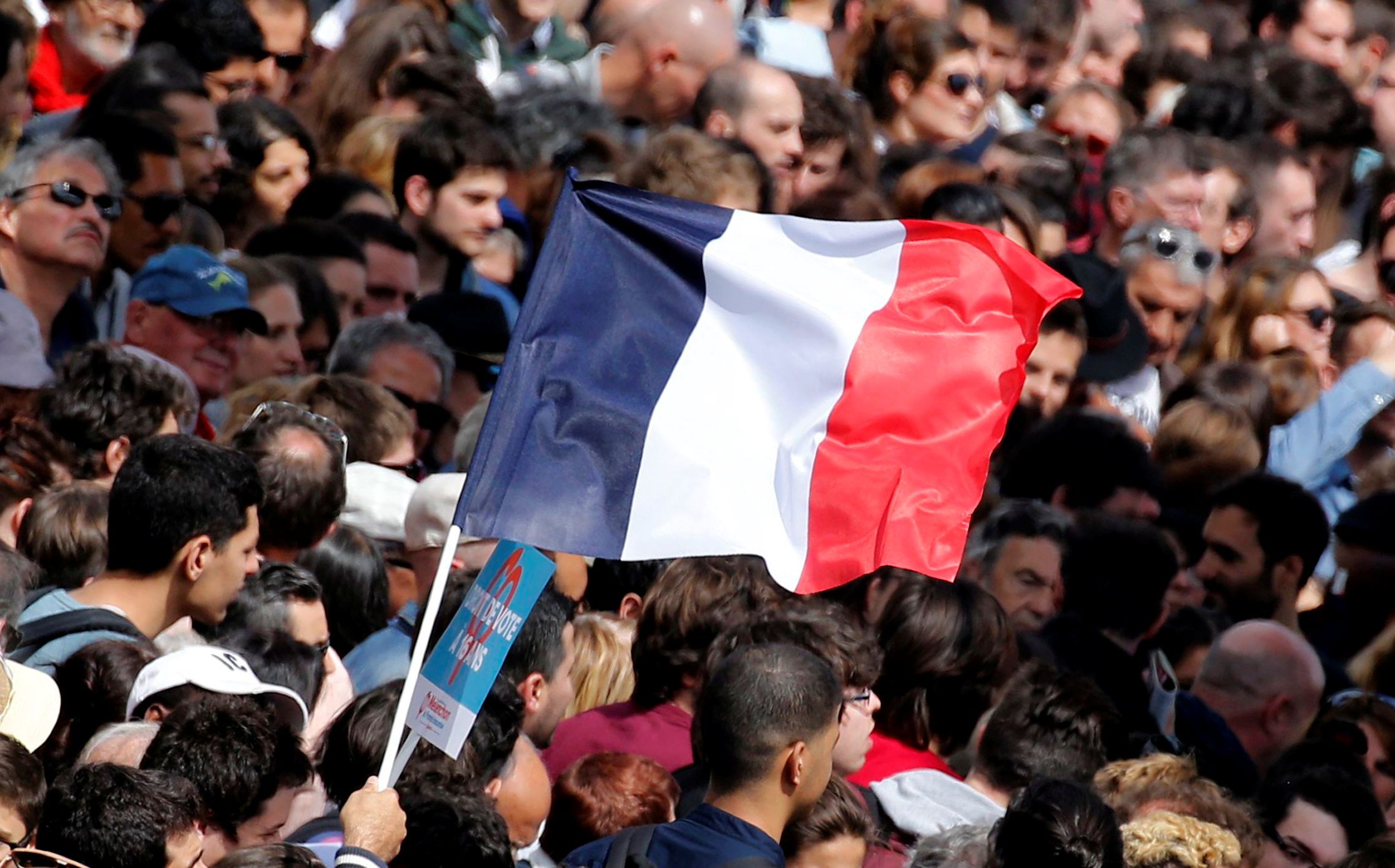
There's an election in France! On Sunday! You probably know this. You probably also know that it involves a whole load of Presidential candidates, mostly dark-haired men whose names all end with "-on." And there's a lot of stuff about the EU all mixed up in there.
But here's why you should be paying even more attention. The 2017 French presidential election is probably going to be Europe's most important and exciting poll this year. Here's five reasons to watch closely:
A battle of the extremes
Unlike, say, the U.S. Presidential race, where a politically conventional Democrat went up against a much more unconventional Republican, in France, most of the main candidates are unconventional, and some are pretty extreme.
On the right, there's Marine le Pen, a hardline anti-Islam populist who has promised a moratorium on all immigration and wants to reverse decades of trade liberalizations.
There's also Francois Fillon, candidate for the center-right Republicans. He's the closest the race has to a "normal" candidate but as an admirer of former British Prime Minister Margaret Thatcher who mixes traditionalist social values with a free market economic agenda he's actually pretty unusual in statist France.
And, on the left, both the mainstream Socialist Party candidate Benoit Hamon and Jean-Luc Melenchon are proposing bold redistributive policies, while the former wants a universal basic income and the latter plans bottom-up reform of France's democratic system.
The fight for the center
Whether you think the moderate center ground in politics must be preserved at all costs or you welcome a return to a more combative, ideological political battleground, France's centrist candidate and frontrunner Emmanuel Macron is one to watch.
Macron's politics aren't unconventional : he is offering targeted state spending accompanied by overall budget cuts and an internationalist, pro-EU foreign policy. His ideology is the one that has run the western world for the past couple of decades. But he is interesting because he is making that case without shame even as the rest of his country's politics becomes more protectionist or nationalist.
And Macron is fighting without the support of an established party: his movement, En Marche! (Onwards!) is only a year old.
If Macron storms to victory, it will signal that despite the rise of populism, western electorates still have time for such messages if sold correctly. If he crashes and burns, it will add to the weight of evidence supporting the opposite view.
Russia's watching
Just like in the U.S., there are fears of Russian interference. Le Pen, Melenchon and Fillon are all Vladimir Putin-sympathetic to varying degrees, and the Russian President could benefit from any of them emerging victorious. France's polling commission issued a warning in February over a false Russian news report suggesting conservative candidate Francois Fillon led the race for the presidency.
Meanwhile Macron's campaign says he has been the victim of a series of targeted cyber-attacks. Foreign Minister Jean-Marc Ayrault denounced the interference as "unacceptable" in a February interview.
There is as yet no evidence of Russian meddling, and it may be that the Kremlin isn't playing any direct role in the French political process. But even if that's the case, the election result could be a big boost for Putin, and it's worth paying attention.
Crunch time for Europe
After Brexit, the refugee crisis, the 2015 Greek debt crisis and a host of smaller squabbles, the EU is not at its strongest point right now. But at the same time, it is more resilient than many give it credit for: as it stands, the union is not on the brink of collapse.
But the French election could change the game somewhat. The far-right candidate Marine le Pen is running in second place in the polls. Her platform includes a referendum on France's continued membership of the euro, and she is a strong Euroskeptic. Meanwhile Melenchon, an independent left-winger, is creeping into third place, and wants to renegotiate swathes of EU treaties. Victory for either candidate would bring the EU several steps toward crisis point.
Uncommon Knowledge
Newsweek is committed to challenging conventional wisdom and finding connections in the search for common ground.
Newsweek is committed to challenging conventional wisdom and finding connections in the search for common ground.
About the writer
Josh is a staff writer covering Europe, including politics, policy, immigration and more.
To read how Newsweek uses AI as a newsroom tool, Click here.








